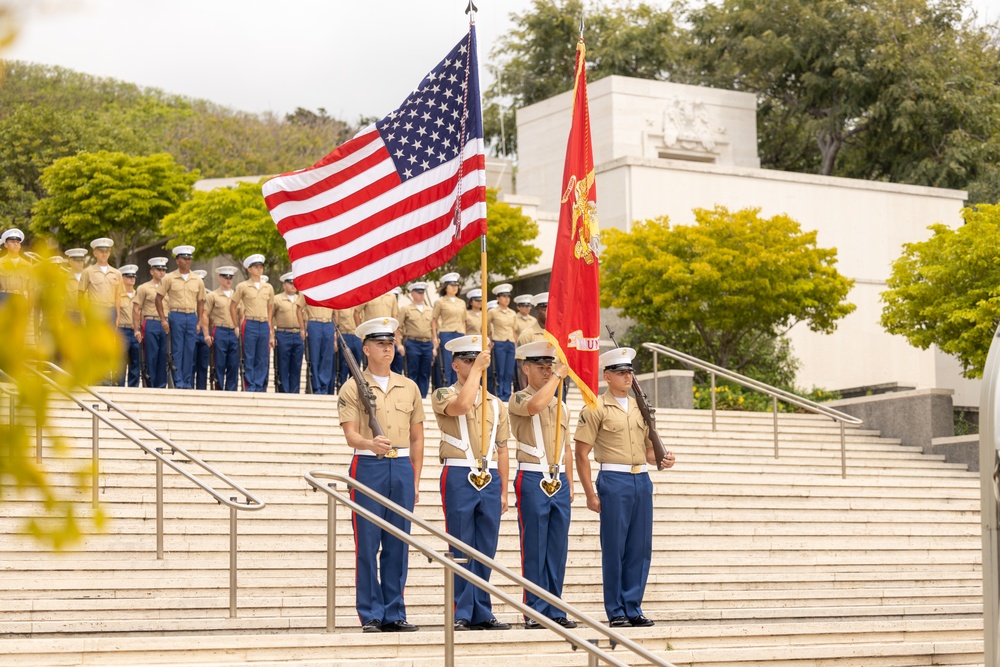DVIDS – News – Army space takes global stage, talks enduring partnership at U.K. Defence Space Conference
LONDON, U.K. — In an age when space is becoming more congested and dangerous as the dependence of both military operations and civil society on space is increasing, the longstanding special relationship between the United States and the United Kingdom is evolving to the new frontier of space as a warfighting domain.
Representatives from U.K. Space Command, U.S. Army Space and Missile Defense Command, U.S. Space Command, allied militaries, think tanks, space technology startups and other industry partners convened at the U.K. Defence Space Conference in London on Sept. 24-25, 2024, to examine space-based threats and how collaboration between the government and private sector can enable the U.K. to develop national security requirements and further integrate into joint operations.
Maj. Gen. Paul Tedman, commander, U.K. Space Command, described a geopolitical climate in which “values-based relations are giving way to power-based exchanges” in current major conflicts.
“Space no longer just accessorizes warfare; it is fundamentally changing how we do our business,” Tedman said. “This new reality is borne from space-based kill webs that exploit technological advances in sensing, decision making, and precision long-range factors that are going to, if not already, enable dramatically faster, more precise global all-domain engagements. Denying, countering, or limiting those effects of adversary space capabilities on our own forces, as well as capitalizing on them for our own purposes, are critical to operational success going forward.”
As such, the U.K. – which stood up its Space Command in April 2021 – must look inward to its private defense sector, its own joint land, sea, air and cyber assets, and international partners to deliver ‘integrated and assured’ space capabilities like space domain awareness;, position, navigation and timing; and satellite communication at tempo, Tedman said.
“If we’re going to become a competitive space power in the next decade or so, we need to be credible enough to deter and postured and prepared to enable the joint force to fight and win,” Tedman said.
To aid the U.K. in further operationalizing its space capabilities, face-to-face partnerships between USASMDC Soldiers and their British counterparts are already underway.
Brig. Gen. John L. Dawber, USASMDC deputy commanding general for operations, first introduced the concept of U.S. Army space in a keynote speech, outlining USASMDC’s mission to provide current and future global space, missile defense and high-altitude capabilities to USSPACECOM and enable communication and maneuver for Army ground forces.
Per the Army’s space vision, a guiding document published by Army senior leaders in January that outlines a renewed focus for Army space activities, integrating with friendly coalition partners is critical to that mission.
“Through active engagement, joint experimentation and collaborative exercises, we are committed to working with our allies and partners to increase space domain capabilities and capacity and support multi domain operations,” Dawber said. “As the U.S. Army and SMDC work to optimize, transform and modernize … it’s always comforting to know we never stand alone.”
USASMDC has incorporated this principle, Dawber said, by launching security cooperation initiatives with the U.K., including various liaison officer exchange programs.
Dawber said that by 2026, USASMDC envisions several British officers “fully integrated” within its operational institutional organizations in Colorado Springs, Colorado, to collaborate closely with Army space professionals. USASMDC has also applied for a British officer to serve as an instructor at its Space and Missile Defense School in Colorado and for a U.S. Army space operations officer to teach at the U.K. Space Academy, based at the Defence Academy of the United Kingdom in Oxfordshire.
Within the last year, USASMDC has also sent two 1st Space Brigade officers to embed with U.K. Space Command and their Multi Role Space Squadron.
“This experience has helped us further identify commonalities and unique differences in doctrine, training and operations, further informing progress toward improved interoperability,” Dawber said. “Combined, the military personnel exchange program and foreign liaison officer programs will go a long way in terms of near real-time information sharing, coordination and engagement within both the operational and institutional realms of both of our (American and British) commands.”
Gen. Stephen N. Whiting, USSPACECOM commander, also touted the importance of this ‘special relationship’ – a term and idea coined by former British prime minister Winston Churchill in 1946, hardened through decades of joint land, air and sea combat, and poised to endure as new threats multiply and diversify in the space domain.
“(Our adversaries) are active in the international arena, but they cannot begin to replicate what we have – relationships forged over the decades in wartime and peace, built on a foundation of shared principles and values,” Whiting said. “In the chaos of conflict, we must be able to look to the person beside us and know that they have our back, regardless of the patch or the flag they wear.”
| Date Taken: | 10.03.2024 |
| Date Posted: | 10.03.2024 18:01 |
| Story ID: | 482477 |
| Location: | LONDON, GB |
| Web Views: | 31 |
| Downloads: | 0 |
PUBLIC DOMAIN
This work, Army space takes global stage, talks enduring partnership at U.K. Defence Space Conference, by Brooke Nevins, identified by DVIDS, must comply with the restrictions shown on https://www.dvidshub.net/about/copyright.


 Private Internet Access gives you unparalleled access to thousands
of next-gen servers in over 83 countries and each US state. Your
VPN experience will always be fast, smooth, and reliable.
Private Internet Access gives you unparalleled access to thousands
of next-gen servers in over 83 countries and each US state. Your
VPN experience will always be fast, smooth, and reliable.
![DVIDS – Images – Narrowband SATCOM Acquisition Delta Change of Leadership [Image 2 of 4] DVIDS – Images – Narrowband SATCOM Acquisition Delta Change of Leadership [Image 2 of 4]](https://101veterans.com/wp-content/uploads/2025/04/1745613417_1000w_q95.jpg)